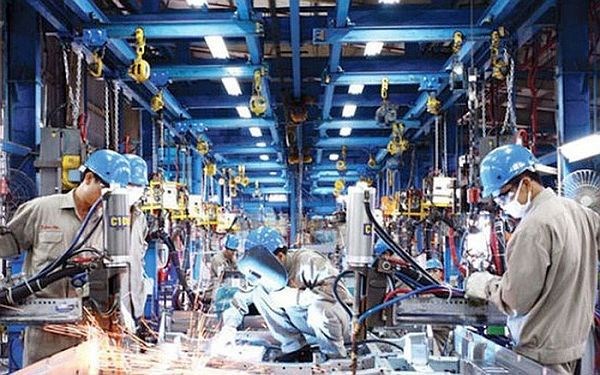Quality workforce – “bottleneck” of support industry firms
 Illustrative image (Photo: VNA)
Illustrative image (Photo: VNA) Hanoi (VNA) – The shortage of high-quality workforce is a “bottleneck” faced by domestic support industry enterprises, said economists.
Firms operating in the support industry now account for nearly 3.4 percent of all those working in the manufacturing and processing sector. They generate jobs for over 600,000 workers and generating over 900 trillion VND in revenue, or 8 percent of the workforce and about 11 percent of the total revenue of the manufacturing and processing industry, the Ministry of Industry and Trade (MIT) reported.
Among spare part manufacturers in Vietnam, many are capable of producing mold of various kinds, motorbike, bicycle and mechanical spare parts, electronic cable lines, plastic and rubber products, and tyres. Some of them are supplying for not only domestic firms but also foreign investors in the country. Their products are also exported worldwide.
Over the past years, the Government along with ministries, agencies and localities have issued a host of policies and mechanisms to develop the support industry.
In Resolution No.115/NQ-CP issued by the Government last year, a number of detailed measures were laid out to develop the industry till 2025 and 2030.
The MIT also held regular business-to-business meetings to connect domestic and foreign firms together in the country. At the Vietnam – Japan teleconference on support industries held in June this year, 21 Vietnamese firms had a chance to link up with 48 Japanese counterparts.
Akutsu Michio, member of the Japan Association of International Business Consultants, said productivity of the Vietnamese firms in the field remains low, adding that they must meet demand for regular supply, because when just a part out of thousands of components is missing, the whole production line will be suspended.
To improve their supply capability, Vietnamese support enterprises are advised to
attract high-quality workforce apart from enhancing output and quality.
Boosting the development of the support
industry is one of the important solutions for Vietnam to improve the quality
of the economy, ensure sustainable development, avoid the middle income
trap and enhance the country’s capacity of attracting foreign investment.
The efforts are also expected to encourage and
assist domestic firms to join deeper into the supply chain of foreign-invested
companies as well as the global supply chain.
Especially in 2025, the domestic support sector is expected to meet 45 percent of the basic demands for domestic production and
consumption with about 1,000 businesses capable to directly supply supporting
products to assembling companies and multinational groups in the Vietnamese
territories.
With the same purpose, in late 2020, the Ministry of Industry and Trade
launched the Vietnam Technology Advice and Solutions from Korea Centre (VITASK)
and a mold technology centre.
The establishment of these facilities showed the desire to boost the growth of
the support industry in a strong manner as well as promote cooperation and
investment to enhance the capacity of Vietnamese firms in engaging deeper into
the global supply chains, meeting the demand for seeking high quality human
resources or promising partners from the Republic of Korea in Vietnam.
Experts held that the
Industry Agency under the Ministry of Industry and Trade needs to expand
technical support centres across the country, while holding activities to
assist industrial production firms as well as relevant industrial service
providers.
Such centres will not only focus on
introducing technologies and supporting businesses in accessing advanced
technologies through international cooperation and the Government’s policies
but also help them in research and development activities, creating new added
values for domestic supporting products.
So far, Vietnam has engaged in many free trade
agreements, including the Regional Comprehensive Economic Partnership (RCEP).
Therefore, the demand for cooperation and partnership among domestic and
foreign firms is very high, along with the demand to develop investment and
production./.












